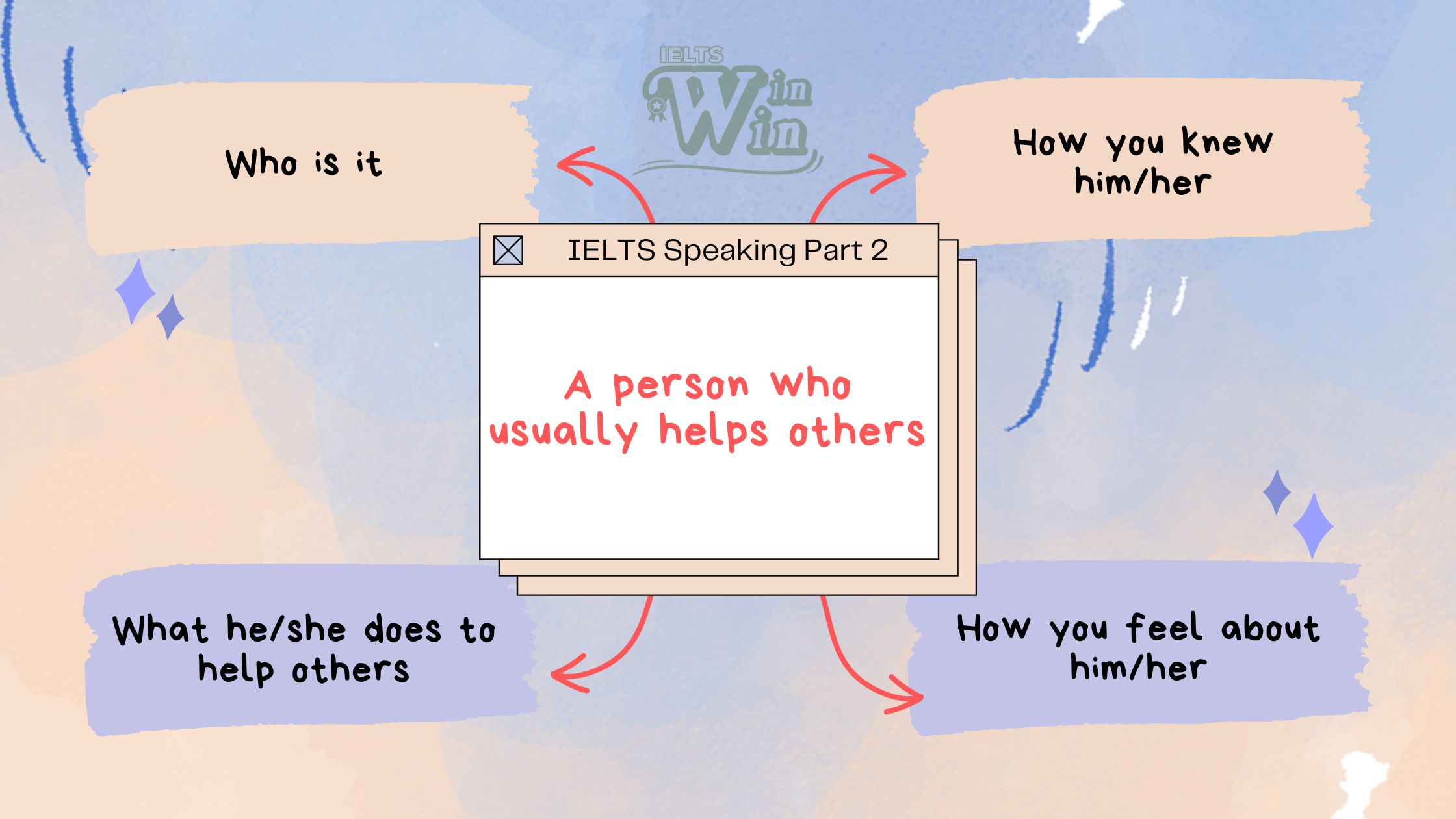✨Part 2: A person who usually helps others
- Who
- How you knew him/her
- What he/she does to help others
- How you feel about him/her
Allow me to introduce you to a remarkable individual named Sarah, who embodies the true spirit of altruism and consistently goes above and beyond to help others. She and I first met in our junior year of highschool.
Sarah has a natural inclination towards helping those in need as she actively seeks out opportunities to make a positive impact in people's lives. Whether it's volunteering at homeless shelters, organizing donation drives, or simply lending a listening ear, Sarah always finds ways to assist others. To me, one of the remarkable things about Sarah that I regard highly is her genuine empathy and compassion. She approaches every situation with a kind heart and a willingness to understand the struggles of others. Her acts of kindness are not limited to material assistance; she also provides emotional support and encouragement to those who need it most. Personally, I am in awe of this girl’s selflessness and dedication to helping others. Her unwavering commitment to making a difference is truly inspiring. Whenever I see her in action, whether it's through her volunteer work or the countless stories she shares, I feel an immense admiration and respect for her as it motivates me to find my own ways to contribute to the well-being of those around me.
In a world where acts of kindness can sometimes feel scarce, Sarah's consistent willingness to help others serves as a beacon of hope. She embodies the values of compassion, empathy, and selflessness, making her a true role model for everyone who has the privilege of knowing her.
- Remarkable: /rɪˈmɑːrkəbl/ (adj) - đáng chú ý, đáng kinh ngạc, đáng quan tâm.
- Embodies: /ɪmˈbɑːdi/ (v) - thể hiện, biểu hiện, đại diện cho.
- Inclination: /ˌɪnklɪˈneɪʃn/ (n) - sự nghiêng về, sự thiên về, sự có khuynh hướng.
- Willingness: /ˈwɪlɪŋnəs/ (n) - sự sẵn sàng, sự mong muốn, sự nguyện vọng.
- Countless: /ˈkaʊntləs/ (adj) - vô số, không đếm được.
- Selflessness: /ˈsɛlfləsnəs/ (n) - tính không ích kỷ, tính vị tha, tính hy sinh bản thân.
Part 3
✨What kinds of jobs involve helping others?
Several jobs involve helping others. Some examples include healthcare professionals such as doctors, nurses, and paramedics who provide medical assistance and care to patients. Social workers work to support individuals and communities facing various challenges, providing counseling, advocacy, and resources. Teachers play a crucial role in educating and guiding students. Police officers and firefighters ensure public safety and help those in emergencies. Non-profit organization workers, volunteers, and humanitarian aid workers also dedicate themselves to helping others in various capacities.
- Paramedics: /ˌpærəˈmɛdɪks/ (n) - nhân viên cấp cứu y tế, nhân viên cấp cứu y khoa.
- Advocacy: /ˈædvəkəsi/ (n) - sự bào chữa, sự ủng hộ, sự đề xướng.
- Non-profit: /ˌnɑːnˈprɑːfɪt/ (adj) - phi lợi nhuận, không có mục đích lợi nhuận.
✨Why do some people like helping others?
People may have different motivations for enjoying helping others. Some individuals find fulfillment and purpose in making a positive impact on the lives of others. Helping can evoke feelings of empathy, compassion, and satisfaction. It can also contribute to a sense of connection and belonging within communities. Additionally, helping others can provide a sense of personal growth, as it allows ` individuals to develop empathy, communication skills, and problem-solving abilities. Altruistic actions can also generate positive emotions and contribute to a sense of personal well-being.
- Fulfillment: /fʊlˈfɪlmənt/ (n) - sự hoàn thành, sự đáp ứng, sự thỏa mãn.
- Satisfaction: /ˌsætɪsˈfækʃn/ (n) - sự hài lòng, sự mãn nguyện, sự thỏa mãn.
- Problem-solving: /ˈprɑːbləm ˌsɑːlvɪŋ/ (n) - sự giải quyết vấn đề, sự xử lý vấn đề.
- Well-being: /ˌwɛlˈbiɪŋ/ (n) - sự khỏe mạnh, sự an lạc, sự hạnh phúc.
✨Is it important to teach children about helping others?
Yes, it is essential to teach children about helping others. Teaching children about empathy, compassion, and the value of helping cultivates important social and moral values. It helps children understand the importance of kindness, consideration for others, and contributing to the well-being of their communities. Learning about helping others also fosters the development of important life skills such as teamwork, communication, and problem-solving. By instilling these values from an early age, children grow up with a sense of social responsibility and become more engaged and active members of society.
- Essential: /ɪˈsɛnʃl/ (adj) - cần thiết, không thể thiếu, quan trọng.
- Cultivates: /ˈkʌltɪveɪts/ (v) - trồng trọt, canh tác, bồi đắp.
- Engaged: /ɪnˈɡeɪdʒd/ (adj) - đã tham gia, đang tham gia, hứng thú.
✨Who should teach children about helping others?
Various individuals and institutions can play a role in teaching children about helping others. Parents and family members have a significant influence on a child's values and behaviors, making them important role models. Schools and educators can incorporate lessons on empathy, kindness, and community service into their curriculum. Non-profit organizations and community groups can organize volunteering opportunities and programs that involve children in helping others. Additionally, religious and spiritual institutions often emphasize the importance of compassion and giving back to others.
- Empathy: /ˈɛmpəθi/ (n) - sự đồng cảm, sự thông cảm, sự cảm thông.
- Non-profit: /ˌnɑːnˈprɑːfɪt/ (adj) - phi lợi nhuận, không có mục đích lợi nhuận.
- Spiritual: /ˈspɪrɪtʃuəl/ (adj) - thuộc về tâm linh, thuộc về tinh thần, có tính chất tâm linh.
✨What can children do to help their parents?
Children can contribute to helping their parents in various ways, depending on their age and abilities. Younger children can assist with age-appropriate household chores such as cleaning up their toys, setting the table, or making their beds. They can also show appreciation and express gratitude for their parents' efforts. Older children can take on more responsibilities, such as helping with meal preparation, doing laundry, or running errands. They can also offer emotional support and communicate openly with their parents, fostering a positive and supportive family environment.
- Age-appropriate: /eɪdʒ əˈproʊpriət/ (adj) - phù hợp với độ tuổi, phù hợp với độ tuổi phát triển.
- Appreciation: /əˌpriːʃiˈeɪʃən/ (n) - sự đánh giá cao, sự cảm kích, sự biết ơn.
- Preparation: /ˌprɛpəˈreɪʃən/ (n) - sự chuẩn bị, sự sửa soạn, sự hành động chuẩn bị.
Xem thêm các bài viết về Speaking Part 2 và 3 ở đây bạn nhé
Đừng ngần ngại để lại thông tin hoặc liên hệ với chúng mình qua địa chỉ sau đây để IELTS WinWin có thể hỗ trợ tốt nhất cho bạn nhé!
Địa chỉ: 118 Nguyễn Xuân Khoát, P. Tân Thành, Q. Tân Phú, TP. Hồ Chí Minh.
Fanpage: IELTS WinWin
Zalo: 0965 439 239 – 085 301 8788
Website: ieltswinwin.com



